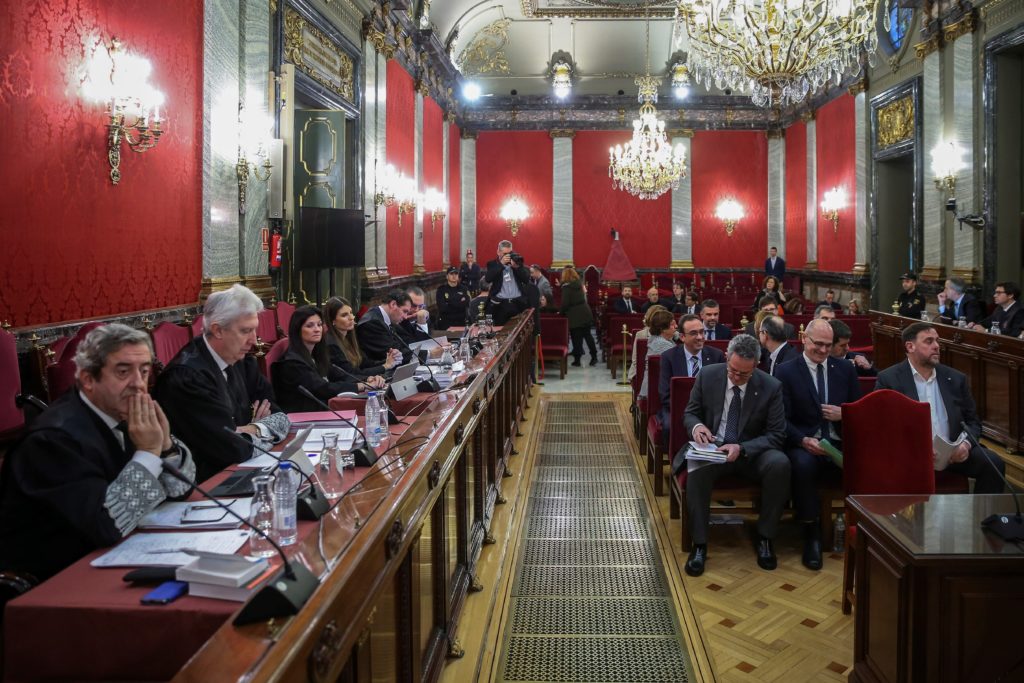13.02.2019 - 16:08
|
Actualització: 13.02.2019 - 17:08
Prosecutors have blamed Catalan leaders for the violence during the 2017 independence referendum, one of the key events for which 12 politicians and activists are being judged in one of Spain’s most politically charged trials in decades.
“I don’t think the responsibility for the violence on referendum day can be attributed to Spain’s law enforcement, but to those who, knowing the law, mobilized thousands of citizens,” said prosecutor Javier Zaragoza, speaking at the Supreme Court on the second day of trial. “They acted as human walls impeding the legitimate police operation.”
Fidel Cadena, also a prosecutor, accused Catalan police of “taking sides in favor of a rebellion.” He said that “human barricades were thrown” against the Spanish police, contributing to “violence and intimidation.”
Police violence
Thousands of police officers from all across Spain were deployed in Catalonia to stop the independence referendum on October 1, which Spanish courts deemed as illegal. They tried to impede the vote by confiscating ballot boxes, closing polling stations and cracking down on voters.
The police operation left more than 1,000 people injured, according to the Catalan government.
Yellow ribbon to be removed?
The Supreme Court turned down a petition by prosecutors representing far-right Vox party, who denounced that one of the defendants was wearing a yellow ribbon—a symbol in support of jailed pro-independence leaders.
“One of the accused is wearing what seems to be a yellow ribbon, a politically charged symbol,” said Pedro Fernández, Vox’s lawyer. He asked the ribbon be removed from the courtroom “over the due respect for justice.”
In response, the courtroom’s president, Manuel Marchena, stressed that defendants would not be prevented from using “ideological symbols”, invoking a ruling by the European Court of Human Rights.
Fundamental rights
On the second day of trial, prosecutors dismissed accusations from defense teams, which claim that the trial violates “fundamental rights” of the accused. Public prosecutors had the first word on Wednesday, dismissing all the requests by the defense teams to “nullify” the trial. “Those who seriously broke the constitutional order are presented as victims of persecution,” said prosecutor Zaragoza.
Referring to points brought up by the defense lawyers, the prosecutor said “no one has been persecuted for their ideas, but for their actions.”
The solicitor general, Rosa Maria Seoane, representing the Spanish government in the trial, dismissed defenses’ accusations of “fundamental rights violations,” stating that “this is a criminal trial, with full guarantees; and nothing more.”
What next?
Once the defense teams and the prosecutors have spoken on the first two days of the Catalan trial, pro-independence leaders themselves are expected to offer their testimony on Thursday.
The former vice president of the Catalan government, Oriol Junqueras—one of the most influential leaders of the independence movement along with former president Carles Puigdemont—will be the first defendant to speak.


